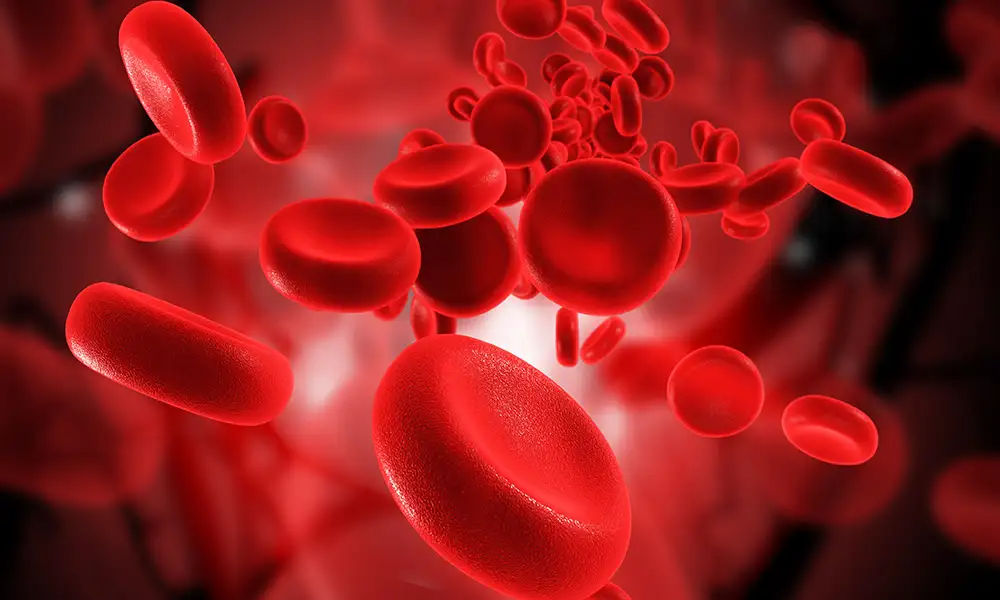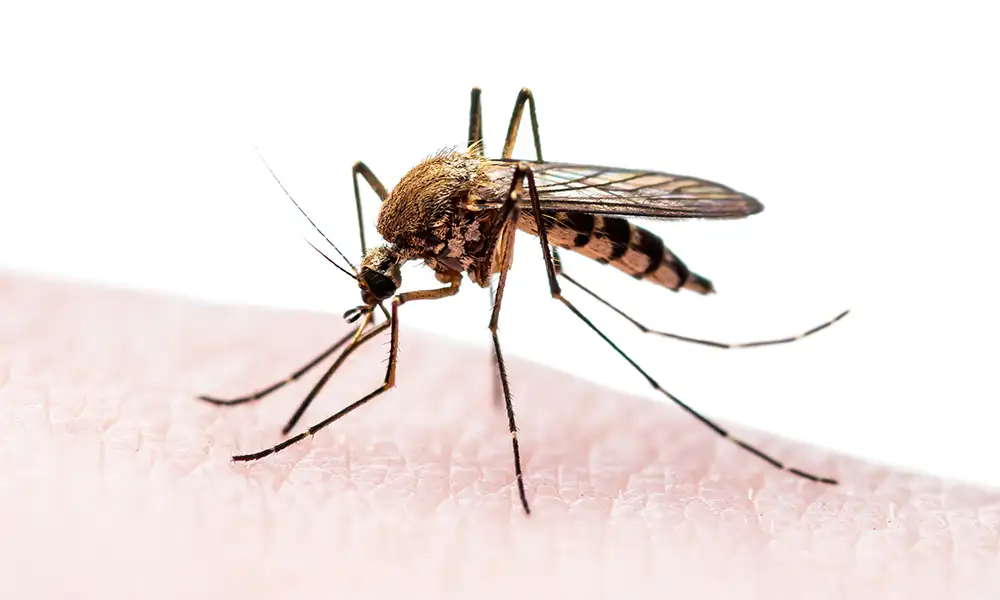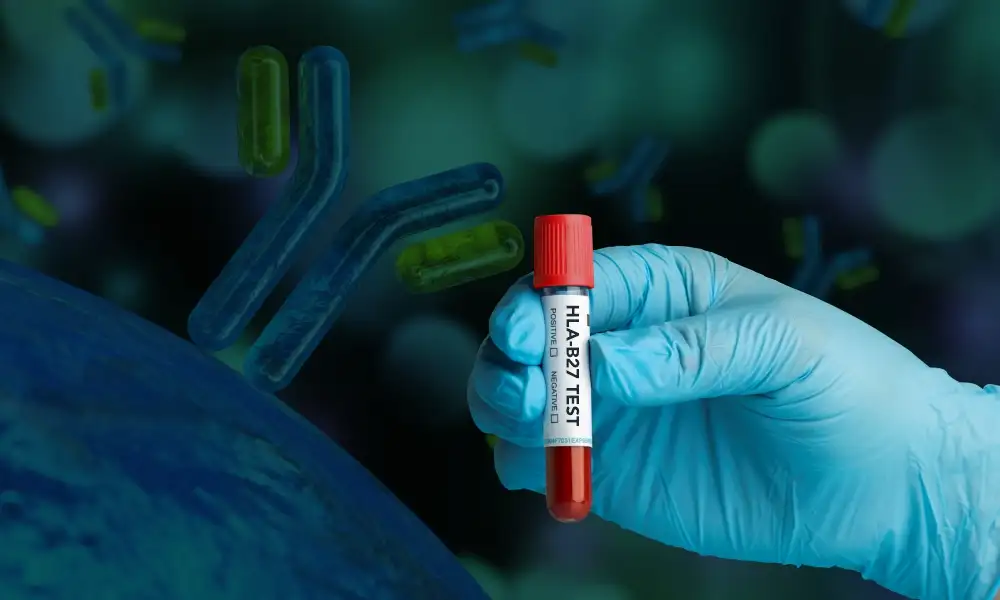Blood - Disorders, Types, Symptoms & Causes
- April 14,2022
- 2 Min Read

Blood transports essential substances like oxygen and nutrients to the cells and transfers metabolic waste products away. It comprises four main components: plasma, red blood cells, white blood cells, and platelets.
Any abnormality or infection in the blood can lead to multiple types of conditions and disorders.
What are the types of blood disorders?
Following is the list of blood disorders that we should be aware of:
- Iron Deficiency Anemia: A condition that arises due to lack of iron in the body.
- Megaloblastic Anemia: A condition in which the bone marrow produces unusually large, structurally abnormal, immature red blood cells (megaloblasts), usually resulting from a vitamin B12 or folic acid deficiency.
- Thalassemia: Thalassemia is a blood disorder passed down through families (inherited) in which the body makes an abnormal form or inadequate amount of hemoglobin. Hemoglobin is the protein in red blood cells that carries oxygen. The disorder results in large numbers of red blood cells being destroyed, which leads to anemia.
- Hemoglobinopathies: A group of inherited disorders that causes abnormal production or structure of the hemoglobin molecule.
- Sickle Cell Anemia: Sickle cell anemia is an inherited red blood cell disorder in which there aren't enough healthy red blood cells to carry oxygen throughout your body. Instead, due to the abnormality of the hemoglobin, red blood cells contort into a sickle shape.
- Anemia in Chronic Kidney Disease: Anemia is a common complication of chronic kidney disease (CKD).
- Hemophilia: Hemophilia is usually an inherited bleeding disorder in which the blood does not clot properly. This can lead to spontaneous bleeding as well as bleeding following injuries or surgery.
Understanding the Symptoms of Blood Disorders
- Iron Deficiency Anemia:
- Extreme fatigue
- Weakness
- Pale skin
- Chest pain
- Fast heartbeat or shortness of breath
- Headache, dizziness or lightheadedness
- Cold hands
- Brittle nails
- Poor appetite
- Megaloblastic Anemia:
- Fatigue
- Shortness of breath
- Abnormal paleness of the skin
- Tender or smooth tongue
- Numbness in extreme cases
- Muscle weakness
- Weight loss
- Swollen tongue (glossitis)
- Fast heartbeat
- Tingling in hands and feet
- Body aches and pain
- Thalassemia:
- Fatigue
- Weakness
- Pale or yellowish skin
- Facial bone deformities
- Slow growth
- Abdominal swelling
- Dark urine
- Hemoglobinopathies:
- Weakness
- Fatigue
- Lack of energy
- Jaundice
- Pale skin
- Sickle Cell Anemia:
- Anemia
- Yellowish colour of the skin
- Periodic episodes of pain
- Painful swelling of the hands and feet
- Frequent infections
- Delayed growth or puberty
- Vision problems
- Hemophilia:
- Bleeding into the joints
- Bleeding into the skin (which is bruising)
- Bleeding of the mouth and gums
- Excessive bleeding after surgery
- Blood in the urine or stool
- Bleeding after having a jab, such as vaccinations
- Frequent and hard-to-stop nosebleeds
- Anemia in Chronic Kidney Diseases:
- Dizziness, loss of concentration
- Pale skin
- Chest pain
- Shortness of breath
- Fatigue or weakness
What are the causes and risk factors of each blood disorder?
Several factors contribute to blood disorders depending on their type. Some of the common causes:
- Iron Deficiency Anemia:
- Inability to absorb nutrients
- Lack of iron production
- Excessive blood loss
- Megaloblastic Anemia:
- Folate Deficiency
- Vitamin B12 Deficiency
- Thalassemia:
- Family history of the disorder
- Hemoglobinopathies and Sickle Cell Anemia:
- Family history of the disorder
- Anemia in Chronic Kidney Disease:
- Chronic kidney disease, the risk for which increases if you:
- Have diabetes
- Have heart disease
- Have high blood pressure
- Are older than 75 years of age
- Hemophilia:
- Mutation or change in one of the blood clotting genes
Recommended tests for blood disorders
Suburban Diagnostics offers a wide range of tests, which helps with early diagnosis and prevention of blood infections/disorders.
- Thalassemia:
- CBC (Complete Blood Count)
- Hemoglobin Analysis
- Hemoglobinopathies
- CBC (Complete Blood Count)
- Hemoglobin Analysis
- Sickle Cell Anemia
- CBC (Complete Blood Count)
- Hemoglobin Analysis
- Sickling Test
- Iron Deficiency Anemia
- CBC (Complete Blood Count)
- Iron studies with ferritin
- Reticulocyte count
- Stool occult blood
- Megaloblastic Anemia
- CBC (Complete Blood Count)
- Vitamin B12 levels
- Folic acid levels
- Reticulocyte count
- Anemia in chronic kidney disease:
- Kidney function test
- Hepcidin
- Complete Blood Count (CBC)
- Hemophilia :
- Complete Blood Count (CBC)
- aPTT
- PT/INR
- Fibrinogen
- Factor VIII Assay
- Factor IX Assay
Want to book a test? Fill up the details & get a callback
Most Viewed
Premarital Health Screening
- 20 Min Read
Typhoid - Signs and Symptoms
- 3 Min Read
Home Isolation Guidelines - Covid-19 Care
- 5 Min Read
HLA B27 Detection: Flow Cytometry & PCR
- 1 Min Read














